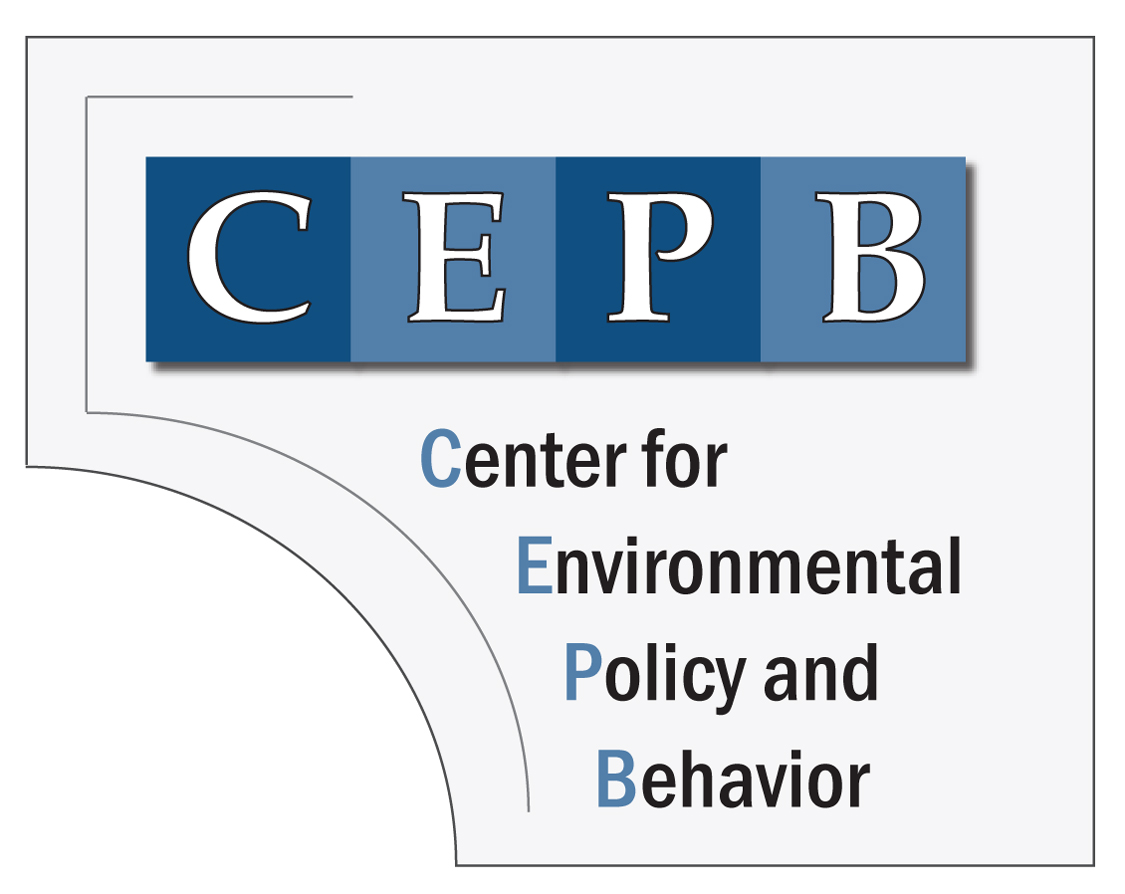

The mission of the Center for Environmental Policy and Behavior (CEPB) is scientific analysis of the interactions among policy institutions, human behavior, and political decisions in the context of environmental and natural resource conflicts. Through developing and testing theoretical models from social science, CEPB seeks to derive practical lessons that can be used to improve environmental policy.
Environmental behavior is influenced by stakeholder beliefs and values, access to information, scientific knowledge, magnitude and causes of the environmental problem, and existing policy institutions. The complexity of how all of these factors interact makes it difficult to determine appropriate policy solutions for different environmental problems. Common features of CEPB studies are the use of multiple theoretical frameworks and scientific methods of data acquisition and quantitative analysis to help unravel these complex issues. We focus on a wide variety of environmental problems and issues, including watershed management, climate change, forest management, marine/coastal systems, biodiversity, and agriculture. Our faculty and students work both domestically and internationally, with recent projects in Brazil, Bhutan, Costa Rica, and India.
The CEPB team includes an actively engaged group of Faculty and Masters/Ph.D. students. Graduate students come from diverse backgrounds including "natural and social sciences" and are enrolled through the Graduate Group in Ecology. Recent graduates have gone on to become academics, researchers, or policy analysts in universities and governmental agencies. CEPB is housed in the Department of Environmental Science and Policy at UC Davis.
CEPB is affiliated with researchers from other academic universities, government agencies, and other U.C. Davis programs and departments.
CEPB’S RESEARCH PROJECTS
Lake Tahoe Policy Research Project
The research involves over 30 years of interview, survey, and testimony data concerning the views of policy participants involved in water quality management in the Lake Tahoe Basin. The project aims to understand belief change over time in the Basin about the seriousness of problems, the perceptions of causes of water quality decline, and policy alternatives.
Watershed Partnerships Project
The primary goal of the Watershed Partnerships Project (WPP) is to understand the factors affecting the ability of partnerships to resolve resource management controversies within the watershed and then to implement those decisions through restoration projects or other means. It presently involves about 80 partnerships in California and Washington.
San Francisco Bay/Delta Project
This project seeks to understand changes in beliefs and perceptions regarding the San Francisco Bay/Delta water policy since the 1950s. It involves surveys in 1984, 1992, and 1997, as well as content analysis of over 40 years of testimony at legislative and administrative hearings.
Marine Life Protection Act Project
The Marine Life Project Act Project (MLPA Project) is an on-going study of the Marine Life Protection Act process in California. It seeks to understand the factors that affect stakeholder satisfaction and to conduct a detailed analysis of how attitudes about Marine Protected Areas change over time.
U.S. Forest Service Planning Project
This project originally focused on the NFMA planning in 40 National Forest Regions 1 through 6 in the 1980s with a particular emphasis on how attitudes of Forest Service officials and pressure from interests groups shape forest management. Recently, the focus has switched to perceptions of fuel management.
National Estuary Program Project
The National Estuary Program research compares the level of cooperation among stakeholders in estuaries with and without the NEP. The NEP is a collaborative planning process sponsored by the Environmental Protection Agency, and is national model for coastal watershed management.
Agricultural Best Management Practices Project
This project examines the conservation practices of farmers in two Florida watersheds, the Middle Suwannee River and the Everglades Agricultural Area. Suwannee River policies encourage voluntary best management practices, while the Everglades requires all farms to implement BMP. A particular emphasis of the project is the development and role of trust in facilitating cooperation.
Integrated Regional Water Management
Integrated Regional Water Management Planning (IRWMP) in California is the product of a state funded grant program, which requires diverse water management interests to participate in the collaborative development of regional water management plans in order to qualify for grant funding. Broadly, our study of IRWMP in the San Francisco Bay Area seeks to identify factors that contribute to success in collaborative, multi-stakeholder planning processes. We are also looking to evaluate the impact that the IRWM program has had on the types of water management projects being implemented, and the degree of collaboration between the various water management stakeholders in the Bay Area. The main elements of this study include in person interviews with a cross section of stakeholders, and a more quantitative survey of all stakeholders involved.

Paul Sabatier, Professor
Email:
pasabatier@ucdavis.edu
Phone: 530.752.3074
Research interests: Policy implementation and the role of science and policy.
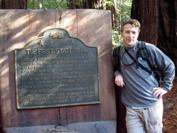
Mark Lubell, Associate
Professor
Email:
mnlubell@ucdavis.edu
Phone: 530.752.5880
Research Interests: Human behavior and the role of governance institutions in solving collective action problems and facilitating cooperation. Particular issues include watershed management, environmental activism, agricultural best management practices, and institutional change in local governments.

James Quinn, Professor
Email: jfquinn@ucdavis.edu
Phone: 530.752.8027
Research Interests: Conservation biology,
biodiversity, biological inventories and monitoring; extinction, intertidal
ecology, marine fisheries management, and environmental data systems.

Andy
Sih, Professor Chair
Email: ashi@ucdavis.edu
Phone: 530.754.7243
Research Interests: Evolution of ecologically important behaviors (predator-prey, mating, and social behaviors), life history traits, and how these influence population and community ecological patterns. Most projects examine freshwater organisms - e.g., fish, amphibian larvae, crayfish, insects and other freshwater invertebrates. Current applied ecological interests include studying effects of pesticides on predator-prey interactions, and behavioral mechanisms underlying species invasions.

Jim Sanchirico, Professor
Email: jsanchirico@ucdavis.edu
Phone: 530-754-9883
Research Interests: Jim's research applies quantitative empirical and theoretical methods to study the conservation of natural resources. Topics include marine reserves, land-use and biodiversity conservation, invasive species management, provision of ecosystem services, rebuilding marine populations, resilience of coral reef ecosystems, household energy use, land use and non-point source pollution, open space referendum, design of market based policies, New Zealand’s individual fishing quota system, and U.S. fishery policy.

Cynthia Lin,
Assistant Professor
Email: cclin@primal.ucdavis.edu
Phone: (530) 752-0824

James Wilen, Professor
Email: wilen@primal.ucdavis.edu
Phone: (530) 752-6093
Research Interests: Bioeconomic modelling; dynamics of open access exploitation; micro foundations of entry-exit decisions; performance of natural resource asset markets; factor distortion in regulated common property industries; energy economics; biomass utilization; recreation economics; transferable quotas; economics of searching behavior; economics of aquaculture; natural resource damage analysis; agricultural pollution; fisheries labor markets; analysis of fisheries markets; technical change and productivity in resource industries; economics of cooperation; economic development/natural resources; spatial models of resource use; terrestrial and marine reserves.
Mike McCoy
Email: mcmccoy@ucdavis.edu
Phone: (530) 754-9171
Kelly Garbach
Email: kgarbach@ucdavis.edu
Phone: 530.752.8898
Major Professor: Mark Lubell and Valerie Eviner
Area of Study: Effects of policy initiatives on ecosystem services of
agricultural lands in Costa Rica.

Owen Goldstrom
Email: okgoldstrom@ucdavis.edu
Phone: 530.752.8898
Major: Managerial Economics
Undergraduate Advisor: Mark Lubell
Area of Study: Central Valley Sustainable Cities Project
 Adam Henry
Adam Henry
Email: adam_henry@ksg.harvard.edu
Phone: 617-496-7491
Major Professor: Mark Lubell
Area of Study: Adam is a
Giorgio Ruffolo Doctoral Fellow in Sustainability Science at Harvard's Center for International Development. He is studying collaborative land-use and
transportation planning in California.

Lucas Lippert
Email: lilippert@ucdavis.edu
Phone: 530.752.8898
Major Professor: Mark Lubell
Area of Study: Luke is interested in collaborative environmental management and
planning, particularly water resources management.
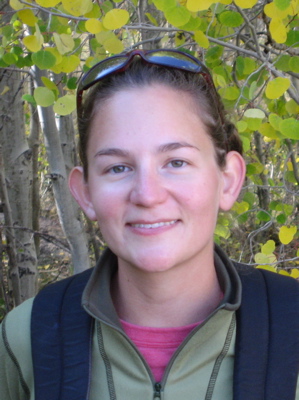
Lauren Shaw
Email: lkshaw@ucdavis.edu
Phone: 530.752.8898
Major Professor: Paul Sabatier, Mark Lubell
Area of Study: Lauren is interested in sustainable agriculture, and particularly
how policy can influence farmer behavior to include more sustainable farming
methods.
Kate Reza
Email: kreza@ucdavis.edu
Phone: 530.752.889
Major Professor: Paul Sabatier
Area of Study: Role of Native Americans in
collaborative
resource management.
Beth Cook, M.S.
Current Position:
Pacific Northwest Laboratories
Email: elizabeth.cook@pnl.gov
Area of Study: “A General Ecology
of Watershed Groups in California”
Dorothy Daley, Ph.D.
Current Position: Assistant
Professor, Department of Political Science, University of Kansas
Email: daley@ku.edu
Phone: 785.864.9030
Areas of Study: Environmental
Policy, Hazardous Waste, State Politics, Urban redevelopment
Bill Leach, Ph.D.
Current Position:
Director of Research at the center for Collaborative Policy
Email:
bleach@ccp.csus.edu
Phone: 916.341.3334
Areas of Study: Watershed
management, formation and success of collaborative watershed partnerships,
regulatory versus voluntary approaches to environmental compliance, long-term belief change among
policymakers and policy coalitions; fuel cells.

Neil Pelkey, Ph.D.
Current Position: Assistant
Professor, Juniata College
Email: pelkey@juniata.edu
Phone: 814.641.3000
Areas of Study: Collaborative resource
management in U.S. and India.
Chris Weible, Ph.D.
Current Position: Assistant
Professor, Georgia Tech
Email:
chris.weible@pubpolicy.gatech.edu
Phone: (404) 385-7223
Areas of Study: Policy processes and
environmental politics; organizational and community preparedness to earthquake
risk.
Matt Zafonte
Current Position:
Policy Analyst, Office of Spill Prevention, California Department of Fish
& Game
Email: mzafonte@ospr.dfg.ca.gov
Areas of Study: Bay delta water policy and mobile source pollution control.
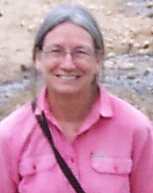
Susan Bolton,
Professor
Current Position:
Director, Center for Streamside Studies at University of Washington
Email: sbolton@u.washington.edu
Phone: 206.685.7651
Area of Study: The effects of land
use on surface water quality and stream habitat.
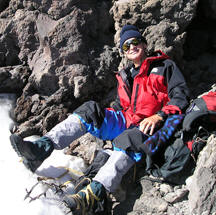
Mark Nechodom, Ph.D.
Current Position:
Principal Research Scientist, USFS Sierra Nevada Research Center
Email: mnechodom@fs.fed.us
Phone: 530.759.1706
Area of Study: Demographic
and social characteristics of residents and visitors and their influences on
public policy in the Sierra Nevada region.